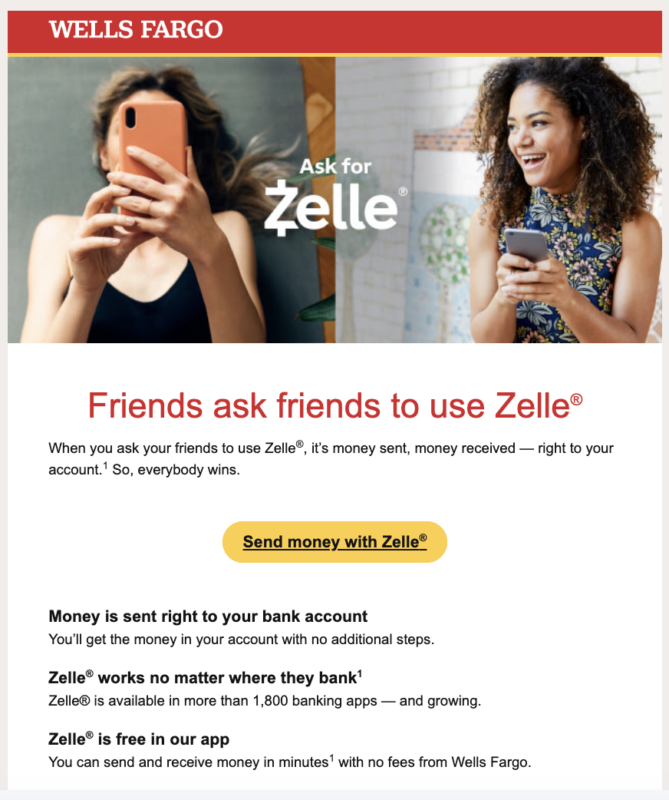When Patricia Peticolas received an urgent call from Chase Bank warning her that someone had stolen her identity on Zelle, she wanted to do everything she could to help.
And help she did. In fact, she allowed scammers to help themselves to $4,800 of her money.
Peticolas fell for a new kind of swindle: the Zelle callback scam. It’s a simple but shockingly effective way criminals are separating Zelle customers from their money. And there is only one way to avoid it. I’ll tell you how in a moment.
How to lose $4,800 with the newest Zelle scam
One recent afternoon, Peticolas received a text message from a number purporting to be from Chase saying that somebody opened a Chase account using her name, social security number and mobile number.
“A representative asked me to contact Zelle as there had been some transactions on the false Zelle account that needed to be removed,” she says.
But in a subsequent phone call, the “Chase” representative gave her instructions for wiring money to his account through Zelle. In an effort to fix her identity theft problem, she made several transfers totaling $4,800. (Related: First, she got an error message. Now her Chase points are gone!)
“I tried to contact Zelle, but the call kept dropping. Then I called Chase to try and reach the person who contacted me, but I could not get through to their extension,” she says. “I am very upset.”
Fact: Reputable banks will never call or send an email or text message that asks you to confirm or give out account numbers, Social Security numbers or other personal information. It will never threaten to close your account if you don’t send personal information immediately. And it will never say there are unauthorized charges on your account and ask you to enter or confirm your account information. (Related: She blamed Chase for draining $2,730 from her account, but it was a cash flip scam.)
If someone calls or texts you from Chase — or any other bank — asking for any of those things, it’s a scammer.
How does the scam work?
The Zelle callback scam is clever because it looks completely legit. Let’s check it out in slow motion.
- Victims receive a text message, purportedly from their bank, warning them of unauthorized transactions on their Zelle account. The message urges them to call their bank.
- The victims immediately call their bank’s number and are often placed on a long hold.
- While they are waiting for a call back from their real bank, the scammers call. They spoof the bank’s caller ID. They apologize for the long wait and say they have “prioritized” the case.
- The scammers then instruct their victims to make a series of transfers from Zelle to another account in order to “fix” the problem.
- Remarkably, they tell their victims to ignore the repeated warnings from their bank that it might be a scam. Even more remarkably, the victims comply. After all, would the bank, or Zelle, ever mislead you?
- By the time the victim discovers the fraudulent transfer, it’s too late. Both the money and the scammer are long gone.
There are reports of this scam happening to customers of Bank of America, Chase, and other financial institutions. We report on tourism scams often on this site, but these new Zelle scams are among the worst.
Bottom line: If you have a Zelle account and a phone, you are vulnerable.
The Zelle callback scam takes many forms
There are variations of the Zelle callback scams. For example, consider the case of Hank Molenaar, who received a text message claiming to be from Bank of America. It asked him if he had tried to make a Zelle transaction for $2,000.
Molenaar reportedly called Bank of America directly at the toll-free number on the bank’s site. The automated attendant that answered informed him he would have to wait 20 minutes to talk to a representative. He pressed “1” to get a callback. (Related: A SIM swapping nightmare leads to a $3,809 bill from Best Buy. Can Chase help?)
He received a call from someone displaying the B of A caller ID. Molenaar told the “representative” he wanted to ensure there was no unauthorized Zelle transfer. The “representative” recommended he set up a reverse transfer back to his account. (Related: I sent $2,000 to the wrong person on Zelle. Can I get my money back?)
There’s no such thing as a reverse transfer.
Instead, the “representative” helped him set up a $2,000 transfer out of his account — and into the account of the fraudsters.
Bank of America refused to refund the money.
Can she get her money back from Zelle?
As soon as Peticolas suspected she’d been scammed, she phoned Chase. A representative asked her to fill out a form but assured her she’d likely be protected.
“The agent said that because it was a scam transaction, they did think it would be reimbursed. Someone would send me text notifications about my claim soon,” she says.
But the money never came back to her, leaving her deeply distressed.
“The only reason we all put our faith in online banking and Zelle payments is because of Chase’s reputation. We trust the institution to protect us from thieves. Right now, I feel that trust has been betrayed,” she says.
What are your rights when a scammer steals your money with the Zelle callback scam?
Regulation E governs your rights to a refund. But the regulation is slippery. Consumers interpret it as a blanket protection against all kinds of wire fraud. But banks view it more narrowly. I have details in my guide to Zelle scams.
Regulation E, established under the Electronic Fund Transfer Act (EFTA), is supposed to be a safeguard for consumers engaging in electronic fund transfers. It covers ATM withdrawals, debit card transactions, and electronic fund transfers under certain circumstances.
The legal framework mandates that once you inform your financial institution about an error, it is obligated to:
- Conduct a prompt investigation into the alleged error, whether reported verbally or in writing.
- Conclude its inquiry within 10 business days.
- Communicate the findings of its investigation within three business days after its completion.
- Rectify the error within one business day of concluding there was an error.
However, the rule only protects unauthorized transactions resulting from a device that was obtained by robbery or fraud or transfers you were “forced” to initiate — i.e., held at gunpoint. It doesn’t cover transfers you voluntarily initiated or where you gave someone else permission to access your device.
In other words, Regulation E would probably not have protected Peticolas when she fell for the Zelle callback scam.
Peticolas still has the right to sue her bank or Zelle or to report the scammers to law enforcement. But using Regulation E as a type of credit card dispute to claw back her money is not going to work.
By the way, there should be a way of reversing a fraudulent wire transfer on Zelle. But until the Consumer Financial Protection Bureau acts, these types of scams will continue.
Can Chase fix this callback scam?
Peticolas did her best to reverse the transaction. After taking the report — and not hearing back — she visited her local Chase branch. A representative took another report and promised to get back to her the next week.
Finally, Chase sent her a terse letter:
“No action will be taken,” it said. “This inquiry is now resolved.”
Or is it? I needed to know if this was Chase’s final answer.
So I asked.
“Hey Christopher,” a representative wrote. “Thanks for bringing this case to our attention. Unfortunately, Ms. Peticolas fell victim to a scam. The team has looked into this case, and our claims decision remains final as our customer authorized the transactions.”
Chase also offered an official statement on her case.
These types of scams are heartbreaking. We urge all customers to protect their accounts by never sharing personal and confidential information with someone they don’t know.
Banks will never call, text or email asking customers to send money to themselves or anyone else to prevent fraud, but scammers will.
But that’s not an effective solution. I’ve been observing these Zelle scams, and the new Zelle callback scams, for a while. Banks are playing a game of cat-and-mouse with the scammers, and they’re using their customers’ money as collateral. And banks are losing. The moment financial institutions discover the scam, the criminals move on to create another one.
The only foolproof way to ensure you’re never going to fall for a Zelle callback scam is to never use Zelle.
I know it’s hard when your bank sends you ads like this. This is a real ad.

Friends do not ask friends to use Zelle.
Close your account. Delete the app. Never look back.
Otherwise, you could be next.




